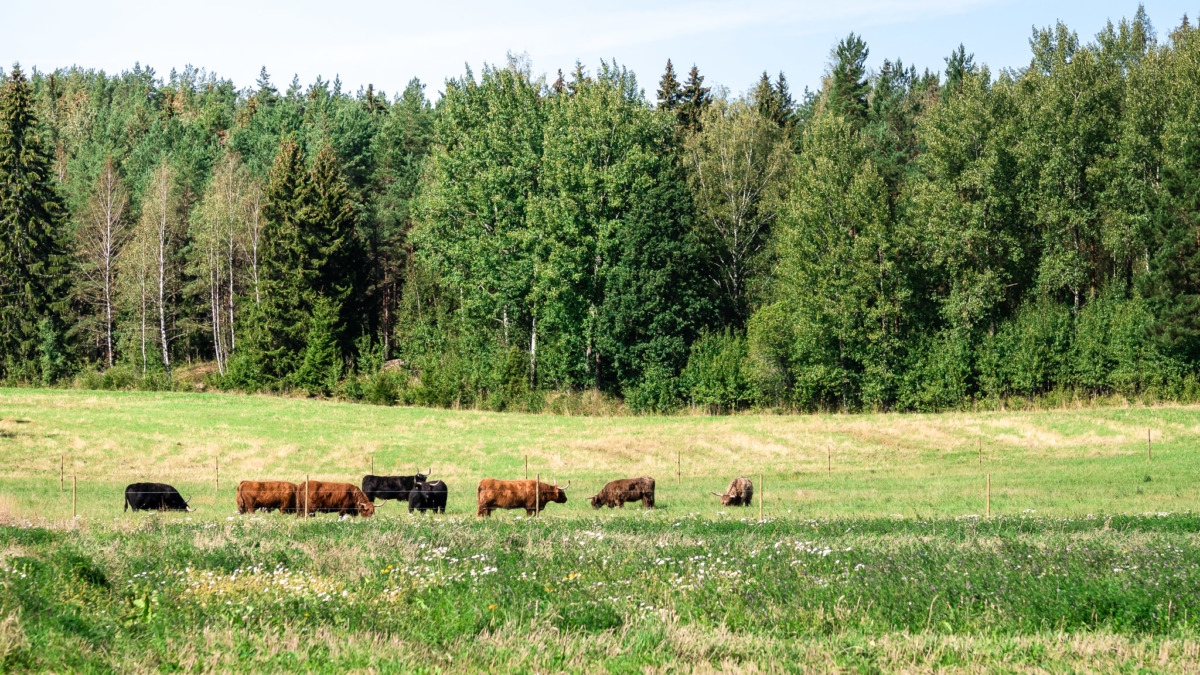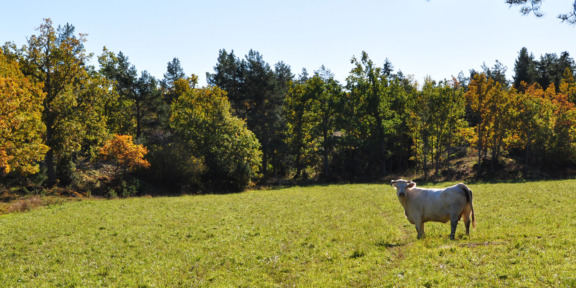NUTRIENT RECYCLING
Recycling is something that an increasing number of Finns do every day. Yet we should also be recycling nutrients, phosphorus and nitrogen. Although phosphorus is essential for life, phosphorus mining strains the environment, and the world’s minable phosphorus reserves are beginning to run out. Despite this, less than a quarter of all mined phosphorus is used by plants to produce food for us. However, we could be self-sufficient in nutrients if we wanted to.

A waste of valuable nutrients
Phosphorus and nitrogen are essential nutrients for life. However, excessive amounts of these nutrients cause [eutrophication] and [oxygen depletion] in bodies of water such as the Baltic Sea. In summer, swimmers and boaters are bothered by algal blooms.
Only a tiny fraction of the nutrients used in food production currently end up being used by plants to put food on our plates. Valuable nutrients are being wasted throughout the food chain, from primary production and processing to our dining tables.
Recoverable nutrients can be obtained from manure, wastewater, food industry side streams and household biowaste.
Financially smart
Nutrient recycling means that nutrients are safely brought back into primary production.
This keeps nutrients out of bodies of water and puts them to good use, for example, in fields that enable plants to grow.
Nutrient recycling is an integral aspect of productive, resource-wise food production. But if nutrient recycling is so smart, why isn’t it the norm? Economic and political structures have created a situation where the continued use of mineral fertilisers is profitable.
We have woken up to the costs of the current system and its practices, but changing the system will take much work. New technologies are constantly being developed to solve this problem.
Nutrient recycling is an integral aspect of productive, resource-wise food production. It’s not only financially smart but also a cornerstone of the security of supply and necessary for minimising the effects of the climate crisis.
Nature benefits when nutrients remain in circulation
The Baltic Sea, the climate and [biodiversity] both on land and at sea all benefit from nutrients in circulation. Reducing our use of nitrogen fertilisers will help the environment, and nutrients will not overburden the Baltic Sea.
The manufacture of nitrogen fertilisers is dependent on fossil fuels. When these fertilisers are spread onto fields, nitrogen evaporates into the atmosphere, accelerating global warming and worsening air quality.
Phosphorus mining strains the environment and brings social and geopolitical risks. Minable phosphorus is an exhaustible natural resource starting to run out globally. Yet less than a quarter of mined phosphorus is successfully utilised in food production.
Using recycled fertilisers instead of industrial fertilisers has many benefits. Soil health improves when recycled fertilisers containing organic matter are spread onto fields. Better soil health prevents nutrient leaching and reduces the need for external fertilisers.
Recycled nutrients safeguard security of supply
The recycling and sustainable use of nutrients is also essential for security of supply, as a large proportion of the nitrogen fertilisers used in Finland are imported across the country’s eastern border.
If nutrients were recycled, the whole of Europe would require barely a fraction of the fossil-based mineral phosphorus and nitrogen that it currently uses.
By recycling nutrients, we can produce good harvests without imported fertilisers.
Nutrient recycling creates jobs
Nutrient recycling is essential, as the health of the natural world is also the foundation for human well-being and economic activity. Nutrient recycling also generates direct economic benefits. As mineral fertilisers’ price rises and availability decreases, there is good reason to improve nutrient recycling.
As nutrient recycling becomes more commonplace, it will also spawn innovations, business opportunities and rural jobs. It can improve the economic profitability of the entire value chain, for example, by using recycled nutrients in biogas production and refining transport fuels.
There is also global demand for new technologies and solutions.
CONTACT US

Kaj Granholm
Project Manager, Regenerative Agriculture, EU affairs
